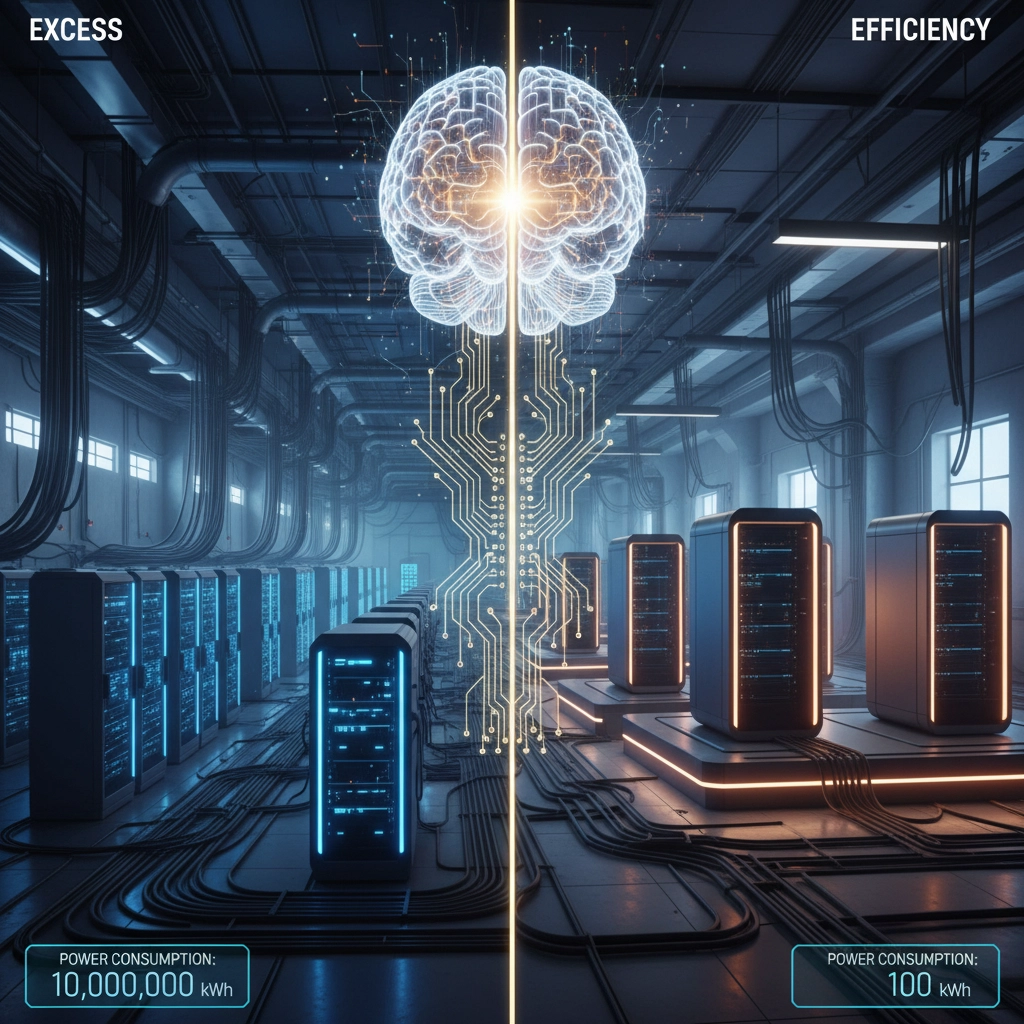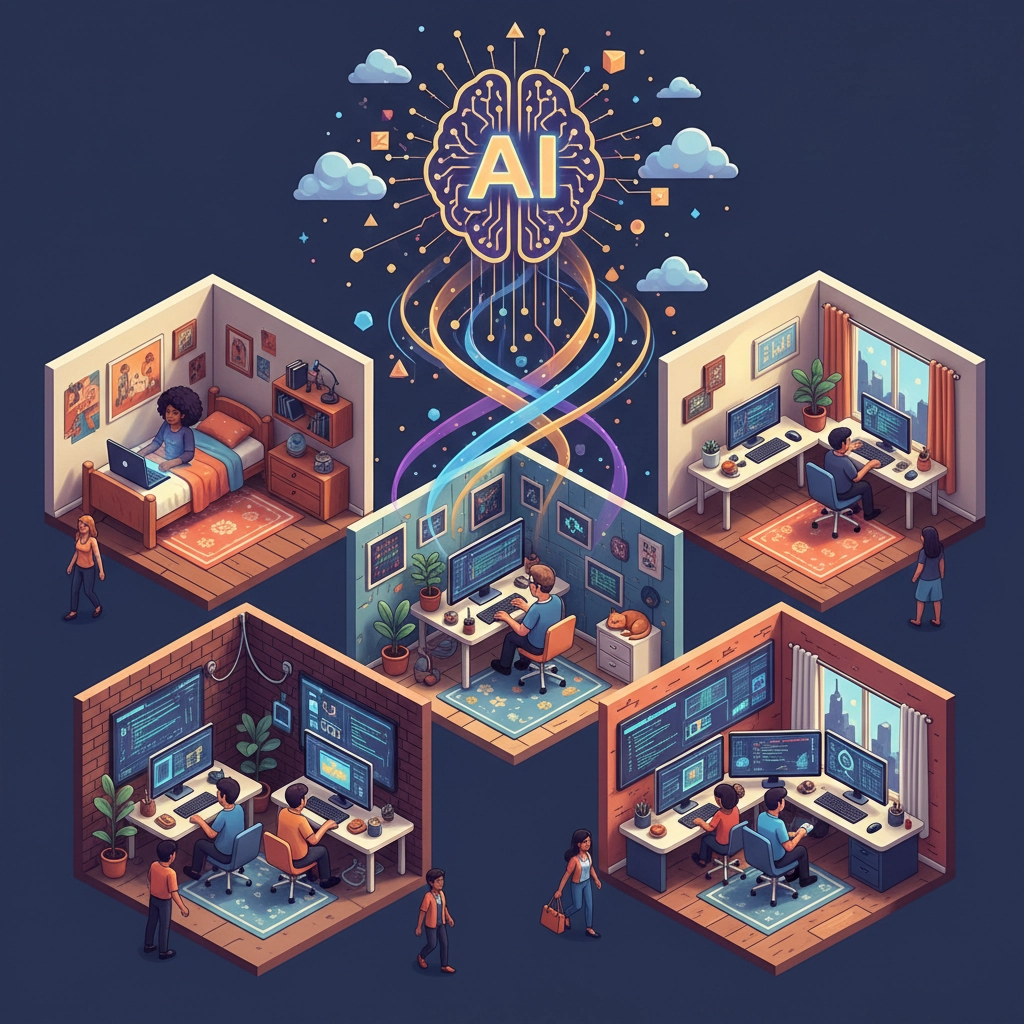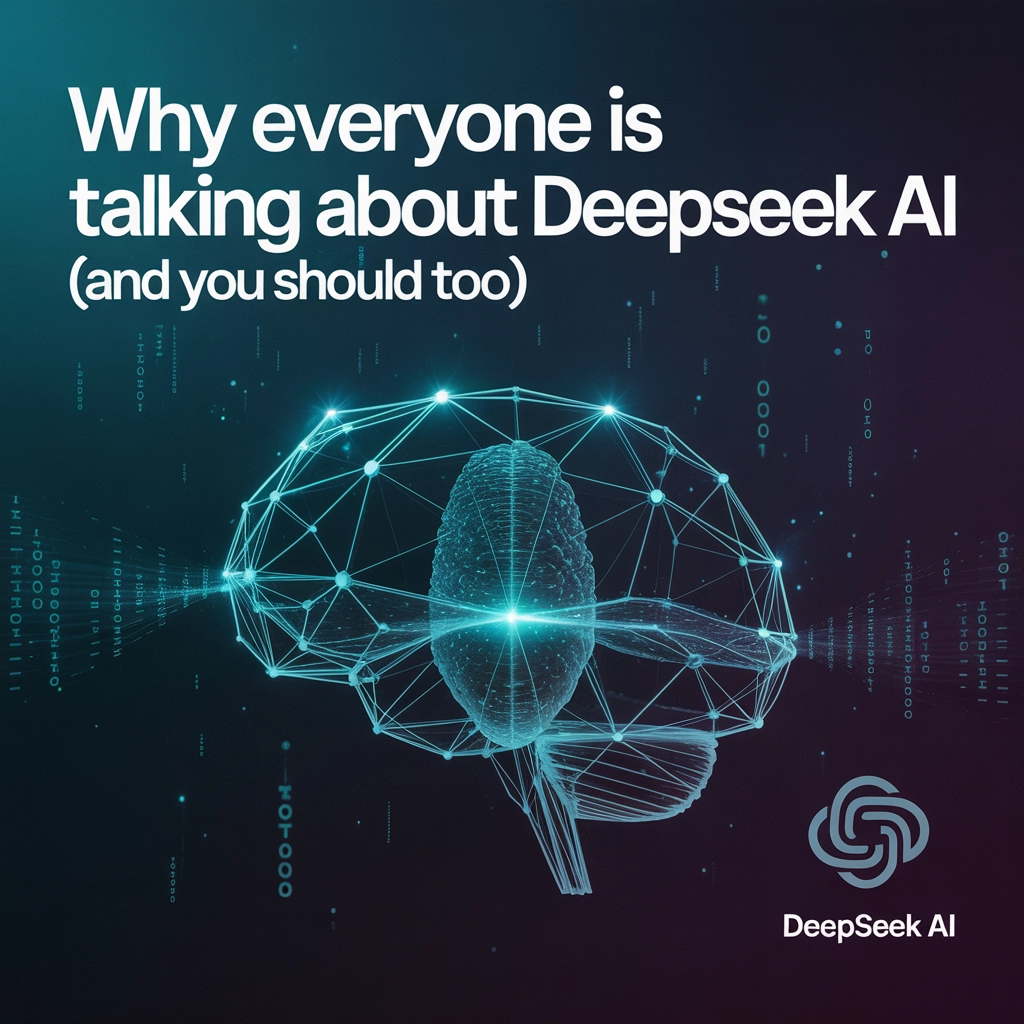Ever heard of a company that made Nvidia lose $593 billion in a single day? Meet DeepSeek AI – the Chinese startup that just broke every rule in the AI playbook and sent Silicon Valley into panic mode.
If you haven't been paying attention to the AI world lately, you probably missed one of the biggest tech earthquakes of 2025. On January 27th, this relatively unknown company dropped a bombshell that made the entire tech industry question everything they thought they knew about building artificial intelligence.
The Day That Broke Wall Street
Picture this: it's a regular Monday morning, and suddenly the stock market starts bleeding money. The Nasdaq drops 3.1%, the S&P 500 falls 1.5%, and Nvidia – the golden child of the AI boom – loses more money in one day than most countries spend in a year.
What caused this chaos? A Chinese company called DeepSeek released their latest AI model for free. Not "free with ads" or "free trial." Completely free, open-source, and available to anyone with a computer.

Wall Street's reaction wasn't just dramatic – it was pure panic. Investors realized that if a relatively small company could build world-class AI for peanuts, then maybe those sky-high valuations for AI giants weren't so justified after all.
But here's the kicker: DeepSeek didn't just release any AI model. They released something that performed just as well as GPT-4 and other premium models, but built it using a fraction of the resources everyone else was burning through.
The $5.6 Million Miracle
While OpenAI and Google have been spending hundreds of millions on their AI models, DeepSeek pulled off something that sounds impossible. They built their advanced AI using just 2,000 older Nvidia chips, costing around $5.6 million total.
To put that in perspective, that's like building a Ferrari for the cost of a Honda Civic. And somehow, their "budget Ferrari" runs just as fast as the expensive ones.
How'd they do it? They got creative:
• Smart architecture choices: Instead of powering up every part of the AI at once (like GPT-4 does), DeepSeek's model works like a team where only the right specialists "wake up" for each question
• Hardware hacks: They squeezed maximum performance out of cheaper, more available chips instead of fighting for the premium ones everyone else wanted
• Automated training: Rather than paying humans to fine-tune everything, they let the AI learn through trial and error – like teaching a kid to ride a bike by letting them practice instead of giving lectures
The technical term for their approach is "Mixture-of-Experts," but you can think of it like having a Swiss Army knife instead of carrying a whole toolbox. Each tool only activates when you need it, saving energy and resources.

Why This Changes Everything
Remember when everyone said you needed massive tech budgets and armies of PhDs to build cutting-edge AI? DeepSeek just proved that wrong. And they didn't keep their breakthrough secret – they gave it away.
This open-source release has already transformed how developers work. Within months, DeepSeek's technology showed up in nearly half of all GitHub Copilot alternatives. Small companies that couldn't afford premium AI services suddenly had access to world-class tools.
Even more impressive? You can now run advanced AI models on regular computers with just 8GB of memory. That means a college student with a decent laptop can access the same AI capabilities that used to require supercomputers.
The democratization effect is real. Over 60,000 developers across GitHub and Hugging Face are now contributing to DeepSeek-based projects. It's like someone just handed out free sports cars and taught everyone how to build their own.
The Bigger Picture Nobody's Talking About
Here's what really has Silicon Valley sweating: DeepSeek proves that AI innovation can come from anywhere. For years, the narrative was that only well-funded American companies could push the boundaries of artificial intelligence.
DeepSeek shattered that story. Suddenly, a team in China with smart engineering and creative thinking outmaneuvered companies with billion-dollar budgets.

Think about Sarah, a small business owner who's been wanting to add AI chatbot features to her website. Before DeepSeek, she'd be looking at monthly bills that could easily hit thousands of dollars for decent AI services. Now? She can download DeepSeek's model, set it up on her own server, and get comparable results for the cost of electricity.
That's not just a cost savings – that's a fundamental shift in who gets to play with the best toys in tech.
What This Means for You
Even if you're not building AI models in your garage, DeepSeek's breakthrough affects you in ways you might not realize yet.
First, expect AI features to get way cheaper and more widespread. When the underlying technology costs 99% less to run, companies can afford to add AI capabilities to products that never had them before. Your favorite apps are about to get a lot smarter without raising their prices.
Second, the quality bar just got raised across the board. If a budget operation can match the performance of premium services, every AI company now has to justify their premium pricing. Competition just got real.
Third, we're entering an era where AI innovation isn't controlled by a handful of tech giants. Small teams, researchers, and even individual developers now have access to tools that were previously locked away in corporate labs.

The geopolitical implications are huge too. As one AI expert put it, "DeepSeek means AI proliferation is guaranteed." No single country or company can gate-keep advanced AI capabilities anymore. The cat's out of the bag, and it's not going back in.
This could accelerate AI development globally as countries and companies realize they can't rely on others for critical technology. We might see an explosion of localized AI solutions designed for specific languages, cultures, and use cases.
The Questions That Keep Everyone Up at Night
DeepSeek's success raises some uncomfortable questions for the tech industry. If building world-class AI doesn't require massive investments, what happens to all those companies valued in the hundreds of billions based on their AI capabilities?
More importantly for regular folks: if AI can be built this efficiently, how quickly will it transform jobs, education, and daily life? When advanced AI becomes as common as smartphones, what does that world look like?
The answers aren't clear yet, but one thing is certain: DeepSeek just proved that the AI revolution doesn't belong to Silicon Valley alone. It belongs to anyone smart enough to think differently about solving problems.
What do you think happens when the tools that seemed impossible just a few years ago become as accessible as downloading an app?







